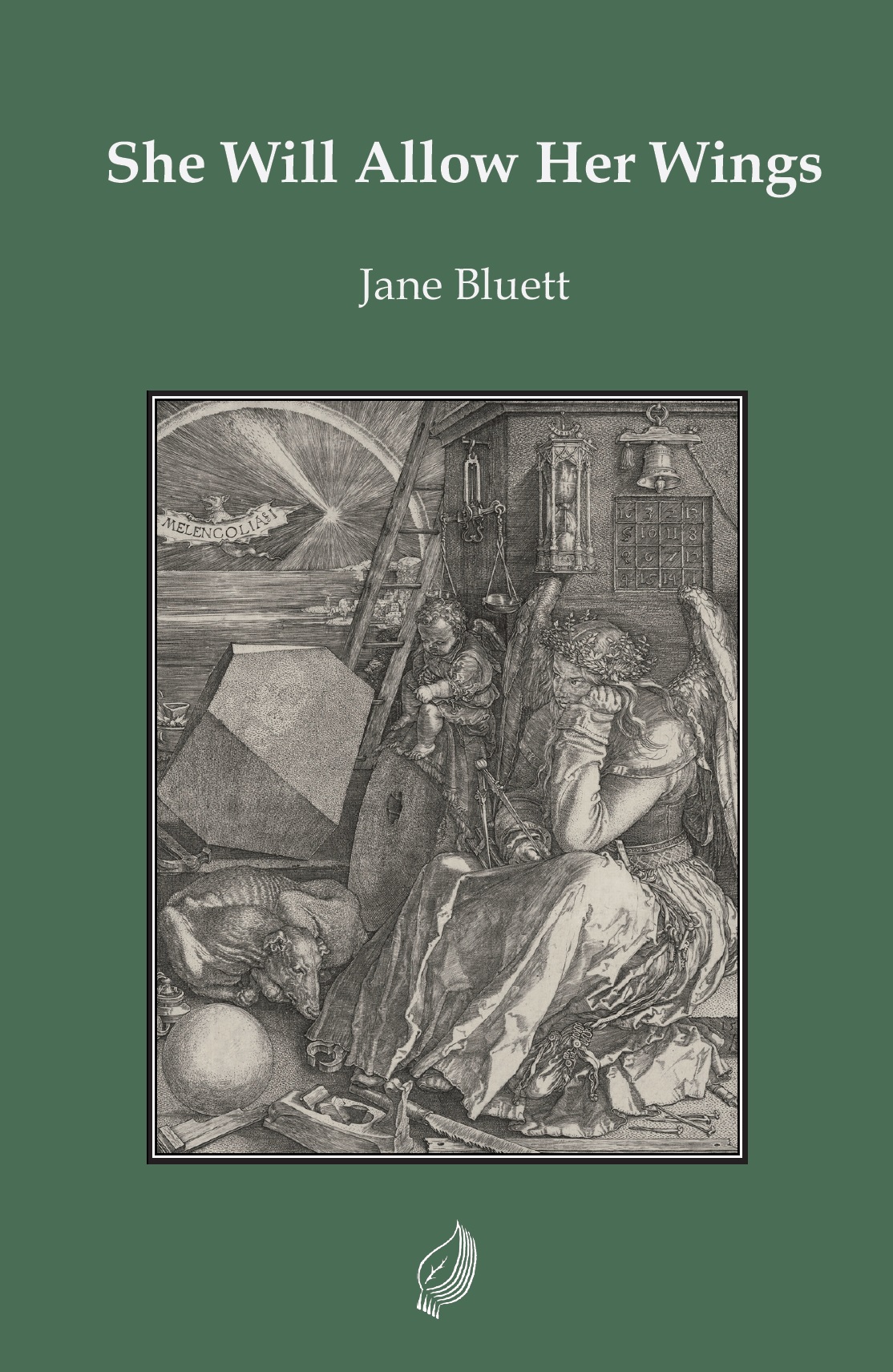Categories

She Will Allow Her Wings
by Jane Bluett
ISBN: 9781915434098
Format: Pamphlet, 40 pages,
Available (Published: May 2023)
£7.00
Book details
Five Leaves returns to poetry publishing with the first in a series of debut pamphlets by East Midlands writers.
From Blackpool to Brighton, from Naples to Indonesia, from London to Nottingham, Jane Bluett’s writing holds a richness of place that is both familiar and unfamiliar. Many of the everyday events which she describes have a slant that gives us new insights into our own experiences as well as those of the myriad of characters that she captures in her verse. The wordplay, the humour and the music of her writing speaks directly to us.
Jane writes with honesty and a generous spirit which understands our common humanity. We all know that awful feeling of being bullied or being exposed as inadequate - these poems allow us to explore our own memories and responses through a different and original lens.
Reading these poems is enriching, enlightening and, above all, enjoyable.
David Beddow – Senior Teaching Fellow at Birmingham City University
About the Author
Jane Bluett lives in Nottingham. Now retired, she taught English and Creative Writing at Bilborough College and was instrumental in establishing the Creative Writing A-level. Her poetry has appeared in numerous publications, including Sweet Breast and Acid Tongue: Poems inspired by William Shakespeare (Like This Press). As a founding member of Nottingham’s DIY Poets, she has read her poetry in many locations in the city. This is her debut pamphlet collection.
1 review for She Will Allow Her Wings
Add a review Click here to cancel reply.
You must be logged in to post a review.



Five Leaves Publishing –
Jane Bluett’s pamphlet has an engraving by Dürer called Melencolia I on the cover. Many of the poems travel through landscapes of melancholy and pain, depicting the pain of hurtful relationships, of loss, or of unpicking the expectations of others in order to create one’s own life. All this is expressed through witty, economically expressed lines which use vivid detail to bring characters and places to life, such as these:
Our love was fucking, fags and futility
But we were happy.
Somewhere between eruption, eviction and bed.
I miss you now you’re dead.
The poems are full of passion and intensity, but never slide into sentimentality. All the depictions and stories feel as though they are at a slant from everyday life, which means we experience these scenes from an angle which makes them feel fresh and strange and direct.
Religion, and specifically Catholicism, is a theme which runs through the book. The sense of being at one remove, or viewing things from a different angle is also present in the poems about religion, where we sense the speaker freeing herself from old dogmas by retelling stories in a fresh and critical way, such as in these final lines of the poem about Mary: ‘I became a great impossibility, / and she, the other me, a silent whore.’
The poems also revel in the detail and substance of places, bringing alive the ordinary and unglamorous – at the seaside: ‘Elephants and Wurlitzers squeal: pink / candy, unflossed teeth, grey trunks, DSS / wildlife. A real field of chips and bingo, / slots of fun, prize every time.’
Stories of misogyny and women’s lives are sometimes told directly in poems about discovering contraception, or about life in a chaotic house, where one section conveys the speaker’s feelings about her encounters with characteristic originality: ‘I left my heart every time, / like a marshmallow sacrifice, / no matter now I hardened it.’ These stories are also retold through myth, fairy tale, and characters from literature, like the good little girl who walks away from the role into queer relationships and happiness, or Ophelia complaining about the men in her life at the clinic. There is added agency for the characters, with a darkness and subversion which reminded me of Angela Carter’s retelling of fairy tales.
A few poems in the collection stand alone as intense descriptions of moments of life, using beautifully precise language. My favourite of these is about an avalanche:
They noticed that the sun
became unbearably bright,
as bright as blindness.
These are fiercely intelligent, interesting, beautifully written poems which roam the world of ideas, places and relationships.
Caroline Stancer